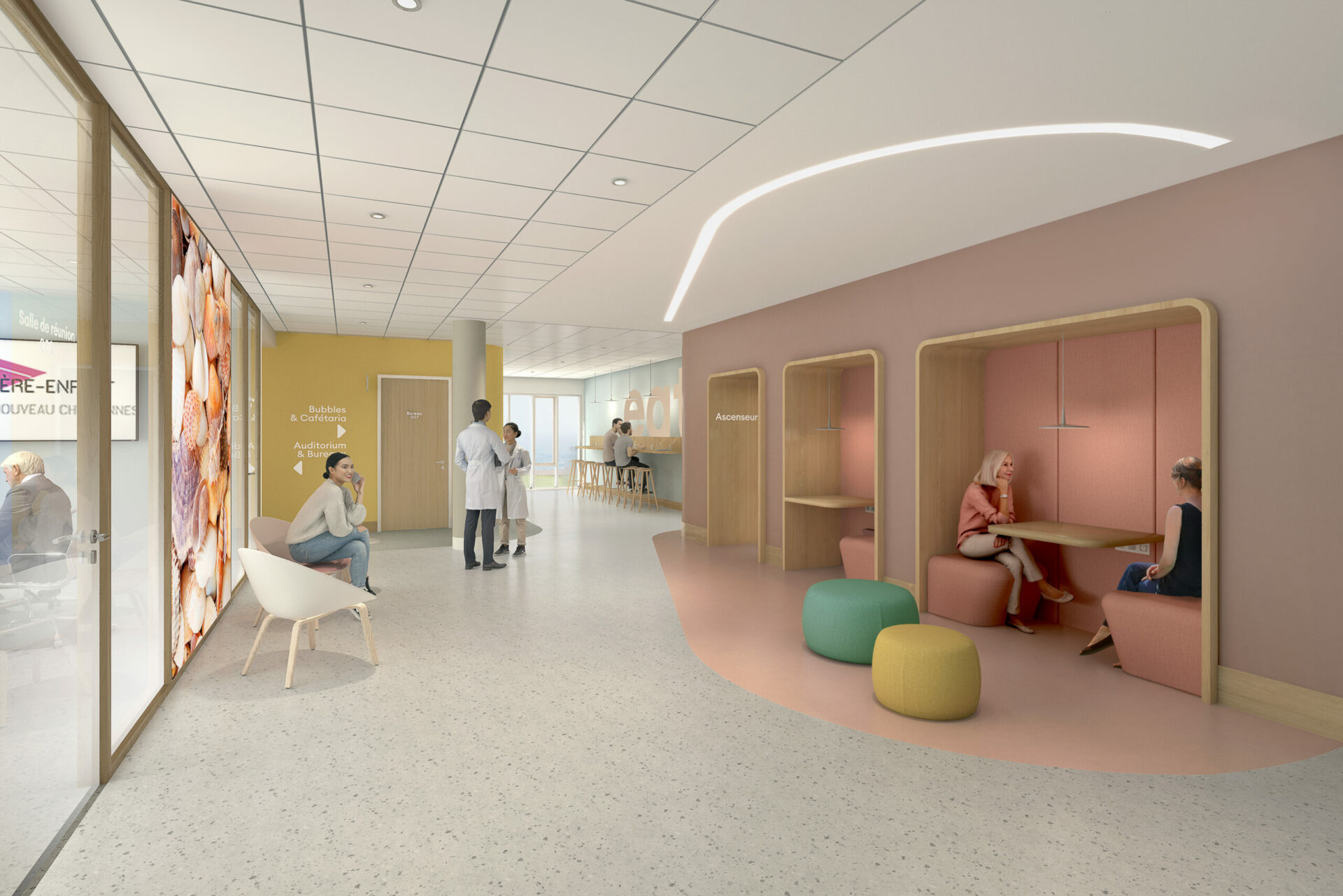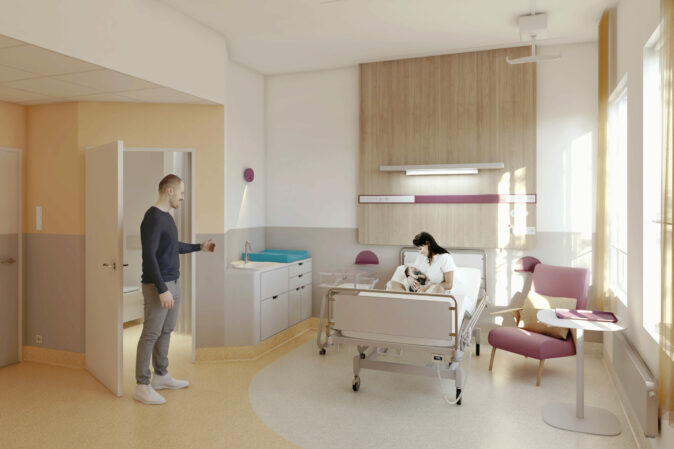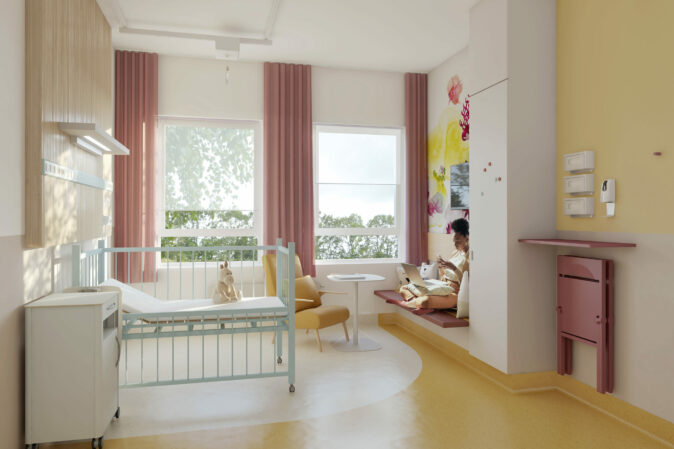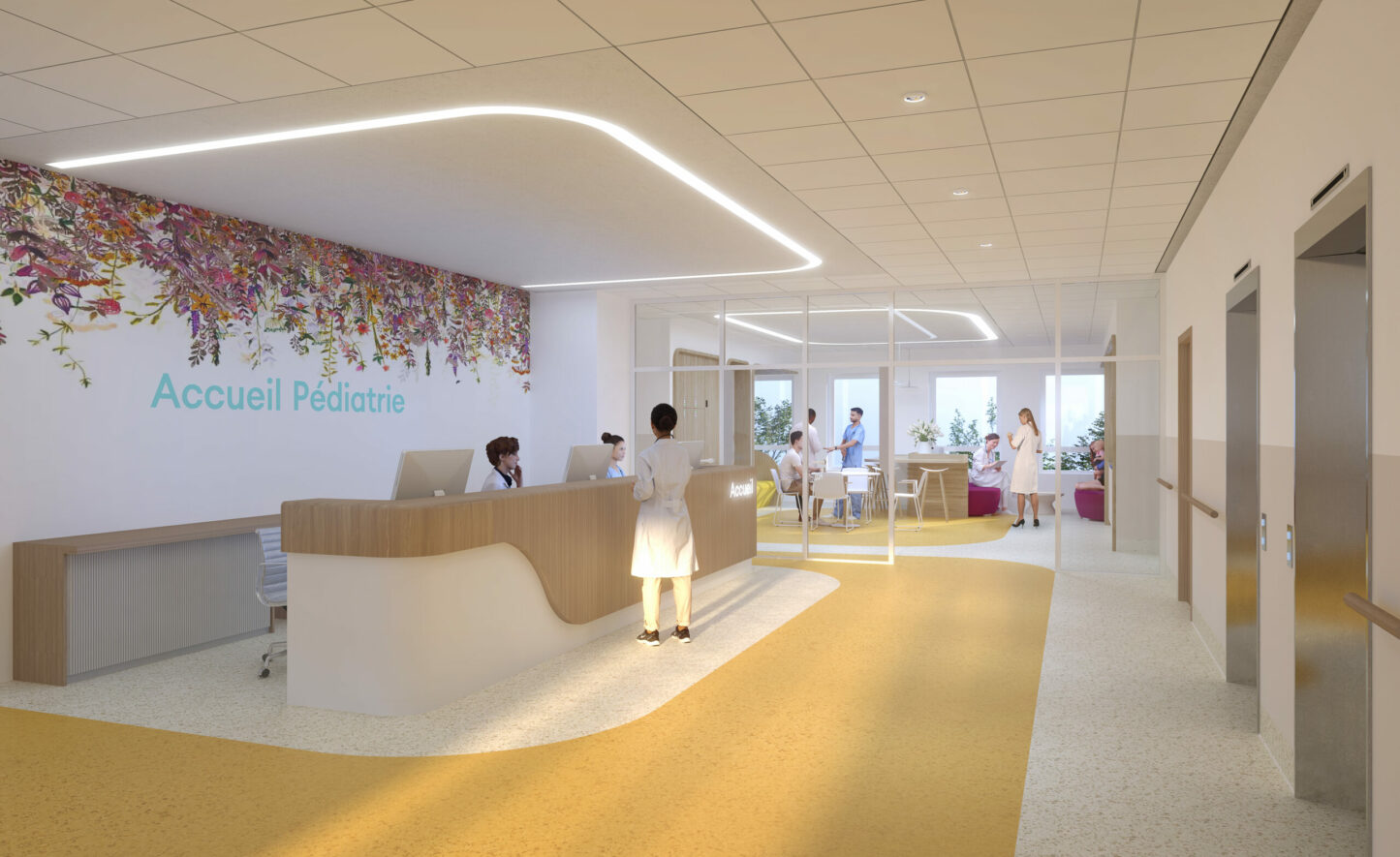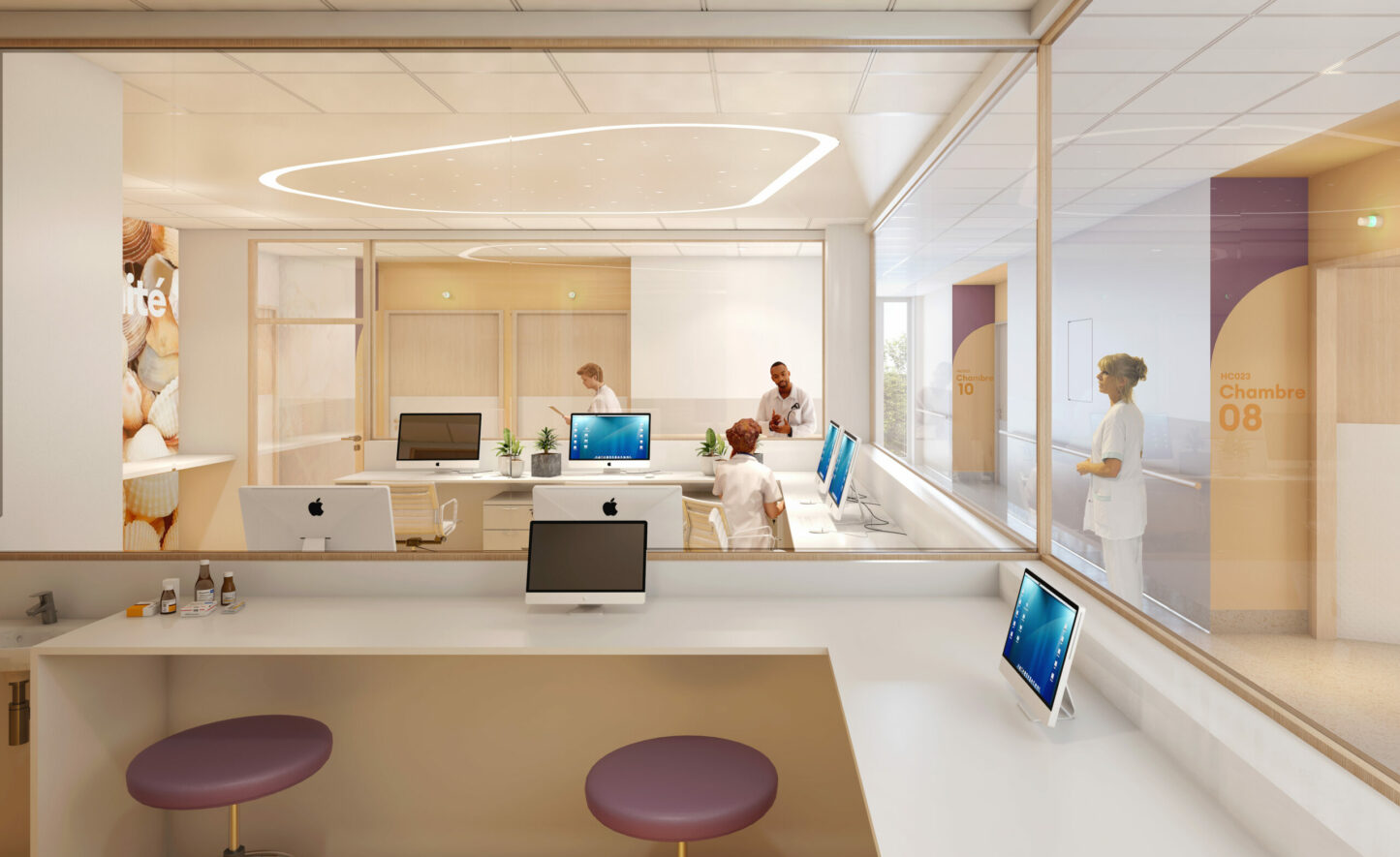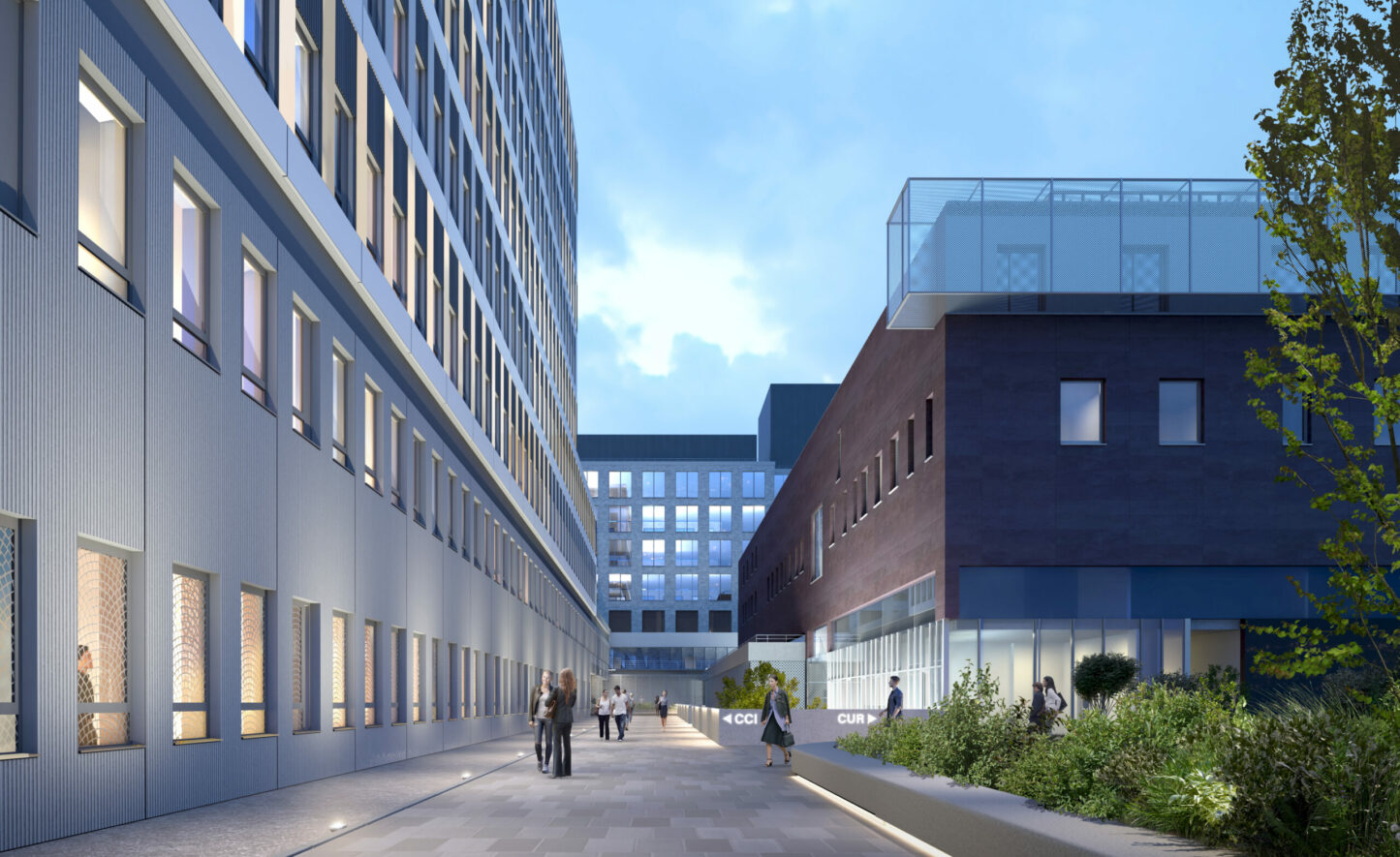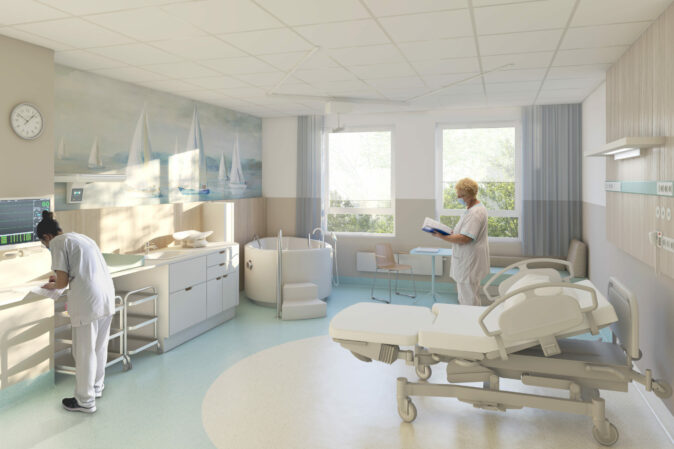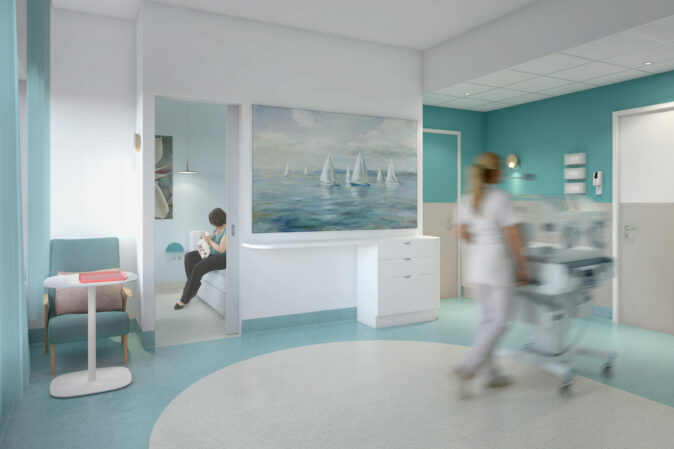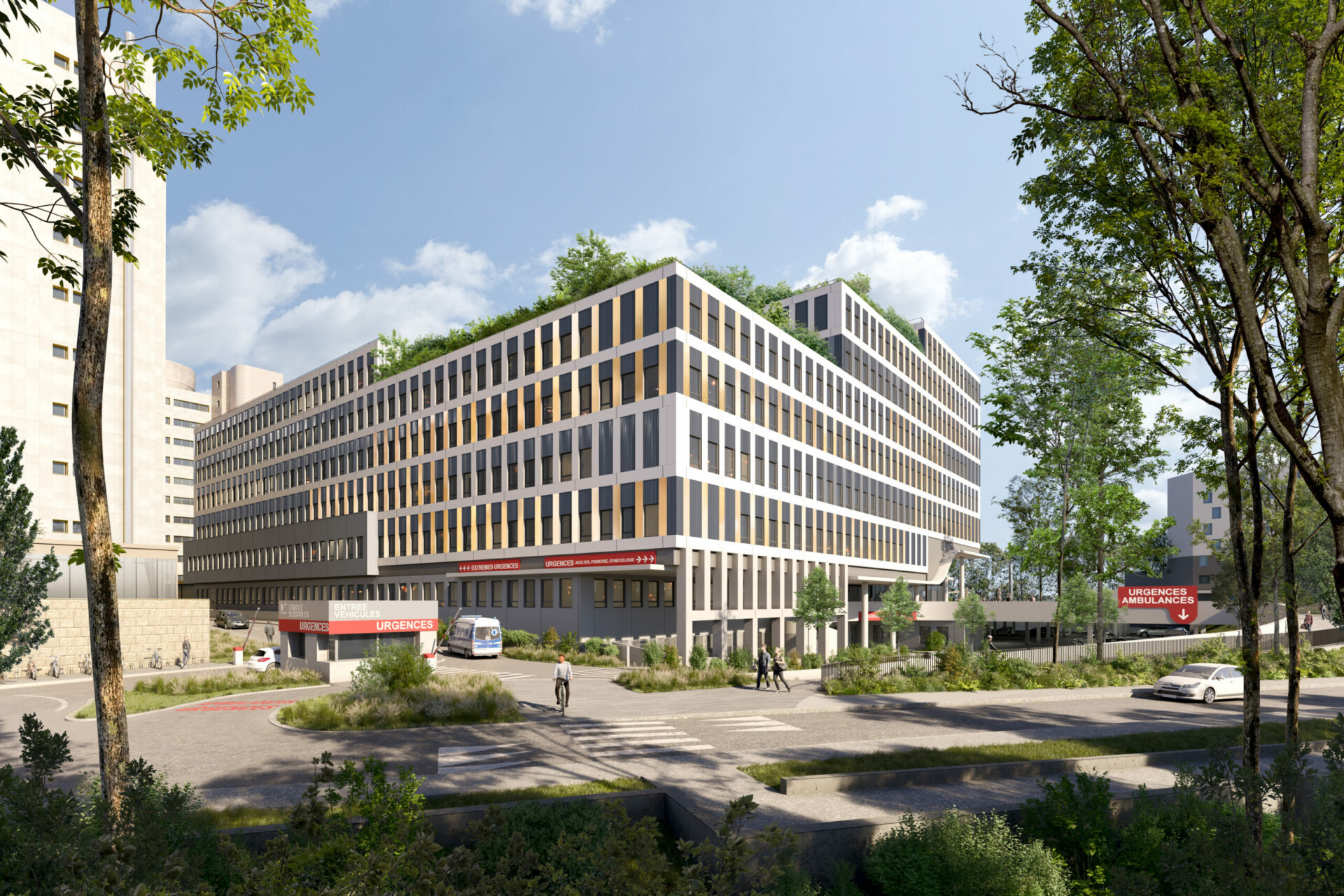new gateway to Rennes university hospital: PFME a caring, welcoming & embracing facility
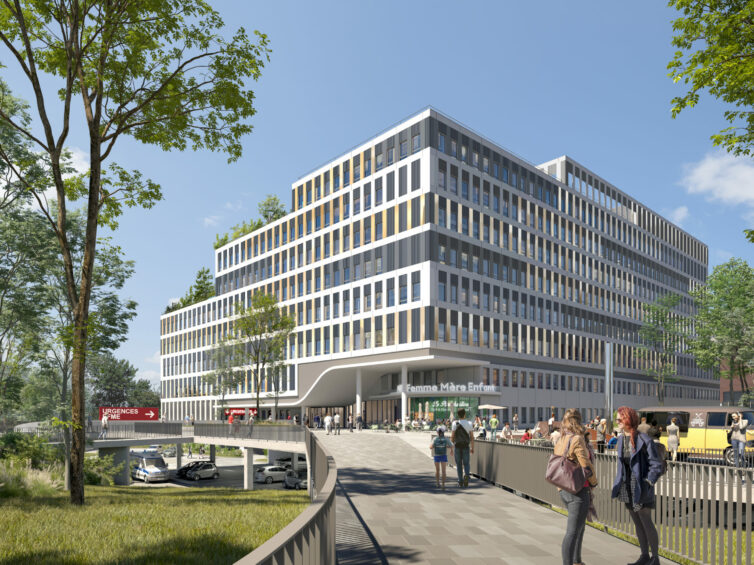
new gateway to Rennes university hospital: PFME a caring, welcoming & embracing facility

The mother-child women’s center project revolves around several key objectives:
• urban, due to its strategic location on the site, it is simple, cohesive & open to the city
• functional, dealing with programmatic complexity, managing the distances of the healthcare journey & ensuring clarity & distinction between patient & healthcare professional pathways
• technical, meeting high-quality & reliability requirements
• human-centric, with inclusivity of spaces & ergonomic design
The project stands out for the quality of its pedestrian square.
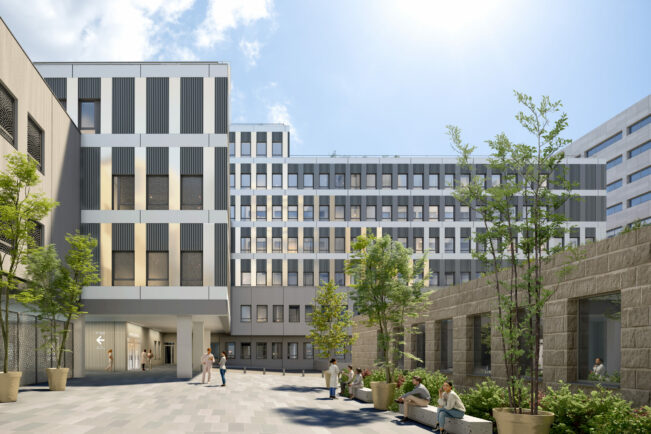
| program | design & construction of the mother-child women's center, 278 beds & the Pontchaillou square, 10.000 m² for Rennes university hospital |
| client | Rennes university hospital |
| address | Parvis Pontchaillou |
| building type | care • heal |
| status | competition |
| expertises | architectureinterior architectureurban design & planninglandscape design |
| offices | paris |
| size | 41.250 m² gross floor area |
| team | • project owner: Rennes university hospital • lead contractor: Eiffage construction • companies: Eiffage Energie • Ceme • architect: assar architects • micro-implantation: Claire Planson • logistics: Adopale • technical engineering: WSP • economist: US&Co • environmental engineering: Eood • safety consultant: Fahrenheit • urban planning: MAARU |
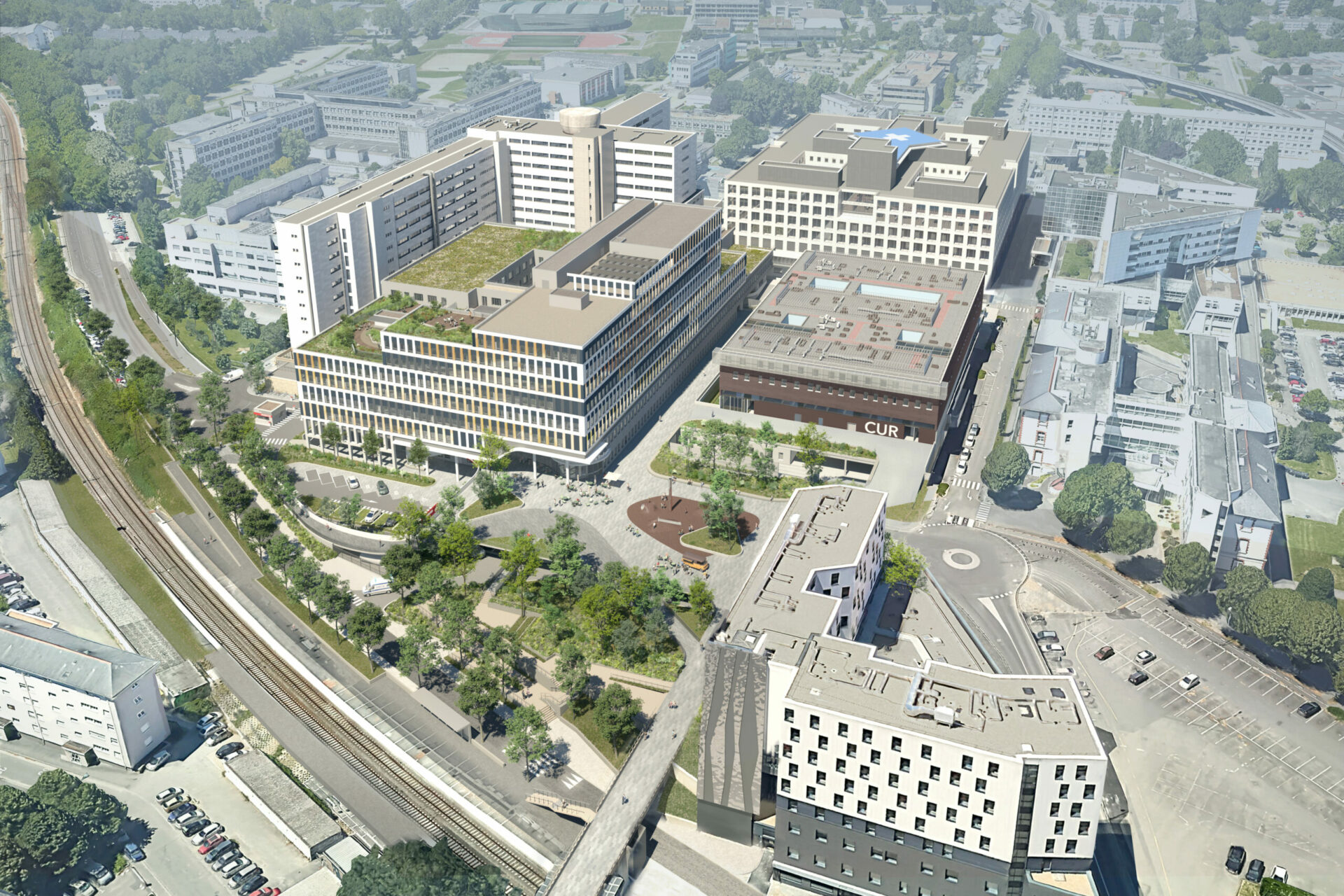
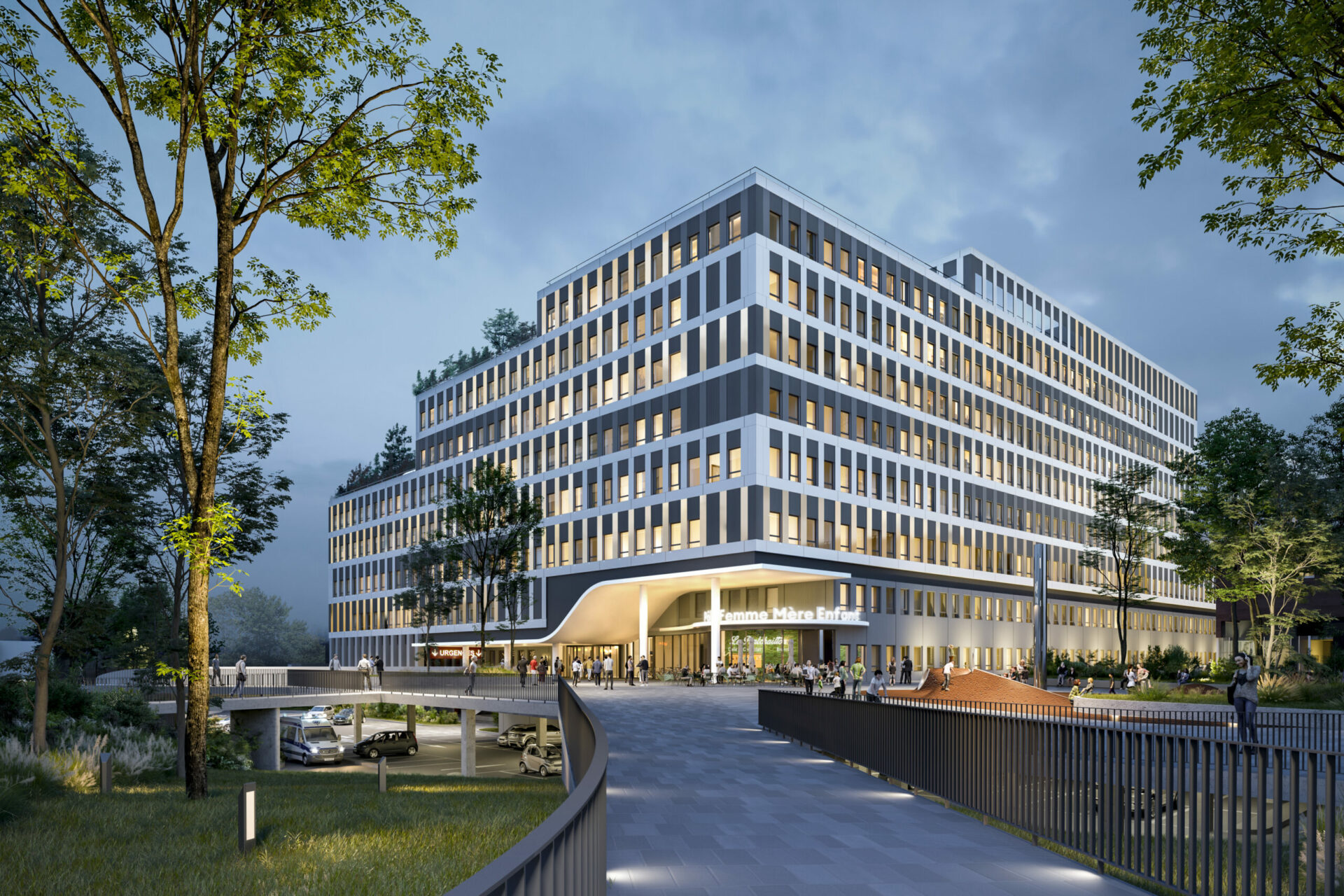
The separated flow of vehicles and landscaped design create a peaceful, welcoming, and vibrant public space for all site users: families, staff, students, and especially a place for children.
The Pontchaillou square becomes the new entrance to the university hospital. The compact form of the building, varying construction heights based on sunlight, and a vibrant color scheme on a structured façade give a strong identity to the PFME on this square.
Inside the building, abundant natural light provides comfort, clear orientation, and readability.
The functional organization benefits from a distribution structure in two vertical towers, allowing for more direct access to service hubs. Horizontal flows are differentiated by a peripheral public circuit and a patient lying down, personnel, and centralized logistics circuit.
The project’s compactness enables proximity of services and optimized healthcare travel times. In the services, surveillance spaces have a panoramic view and visual connections to the outside.
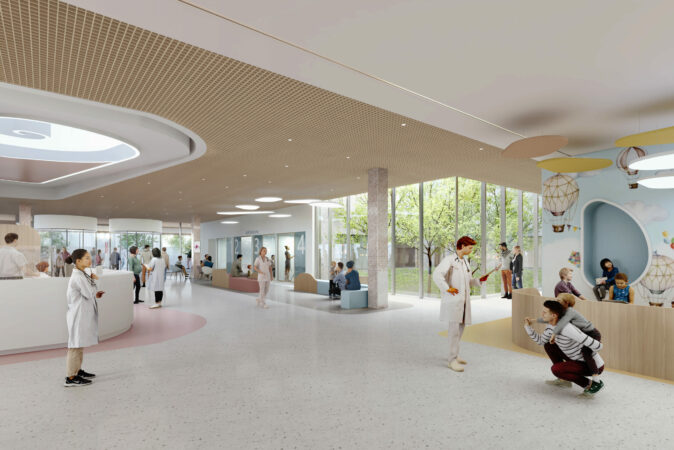
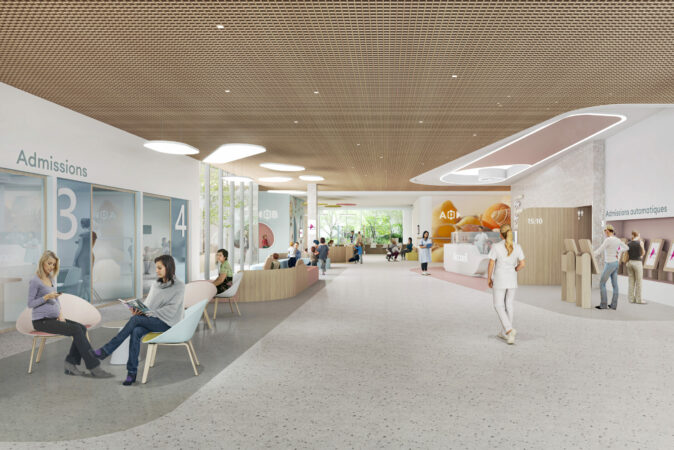
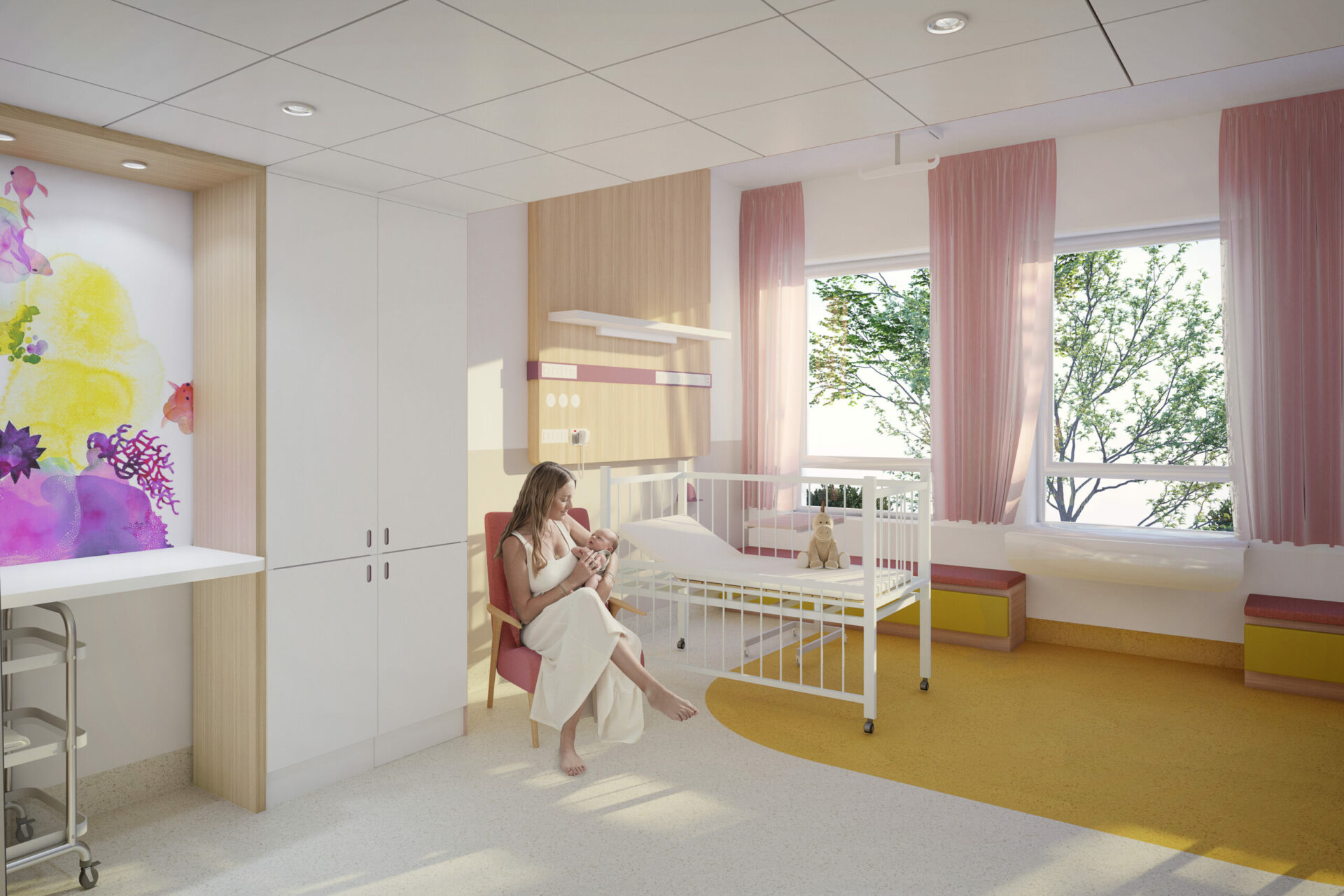
Interior architecture, ergonomics, and even micro-implantation place humans at the core of the project. In the rooms, hotel-quality is inclusive for companions and children.
Healthcare staff have two levels of forums to be in immediate proximity to their service while moving in spaces dedicated solely to them.
The PFME has two accessible rooftop gardens complementing the overall landscaping: a therapeutic garden for pediatrics and a rooftop for the staff. Both face south, open to the city of Rennes, and shielded from view.
